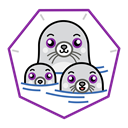Docker Alternatives

Docker
Docker makes deploying your entire development environment easier and portable than many other container software. Many developers swear by Docker's ease of use when compared to other container software. Docker is capable of virtualization, as are many of its alternatives.
Docker is available for all major operating systems, though there are alternatives to Docker with self-hosting options, as well as on systems running FreeBSD.
Best Docker Alternatives for Linux
You're looking for the best programs similar to Docker. Check out our top picks. Below, let's see if there are any Docker alternatives that support your platform.

Nanobox
CommercialOpen SourceMacWindowsLinuxWebNanobox is the ideal platform for developers. Taking on the role of DevOps, so you don't have to, Nanobox does all your infrastructure creation, configuration, and management, so you're able to focus on code, not config. Create consistent, isolated, development environments that are easily shareable with anyone, and can be deployed to any host (AWS, Digital Ocean, Azure, Google, etc.). Easily manage production applications with the Nanobox dashboard.
Features:
- Automated deployment
- Cloud coding
- DEV/OPS setup
- Developer Tools
- IDE
- Works Offline

Apache Mesos
FreeOpen SourceMacLinuxApache Mesos is a cluster manager that simplifies the complexity of running applications on a shared pool of servers.
Features:
- Hypervisor
- Operating system
- Virtual Machines
- Virtualization

OpenVZ
FreeOpen SourceLinuxOpenVZ is container-based virtualization for Linux. OpenVZ creates multiple secure, isolated Linux containers (otherwise known as VEs or VPSs) on a single physical server enabling better server utilization and ensuring that applications do not conflict. Each container performs and executes exactly like a stand-alone server; a container can be rebooted independently and have root access, users, IP addresses, memory, processes, files, applications, system libraries and configuration files.
Features:
- Container
- Container virtualization
- Linux-based
- Virtualization

Deis
FreeOpen SourceLinuxDeis is an open source PaaS that leverages Docker, CoreOS and Heroku Buildpacks to provide a private application platform that is lightweight and flexible.
Features:
- Support for Docker
- Hypervisor
- Operating system
- Virtual Machines
- Virtualization

Singularity
FreeOpen SourceMacWindowsLinuxSingularity creates a virtual environment for applications without the performance penalties associated with virtual machines. Best of both worlds: it simplifies the deployment of applications across different clusters and supercomputers by avoiding the laborious process of rehosting those applications for each distinct environment, without requiring a virtualized hardware layer.
Features:
- Container
- Single file container

LXC Linux Containers
FreeOpen SourceLinuxLXC, acronym for Linux Containers, is a lightweight Linux kernel based virtualization solution, which practically runs on top of the Operating System, allowing you to run multiple isolated distributions the same time. The difference between LXC and KVM virtualization is that LXC doesn’t emulates hardware, but shares the same kernel namespace, similar to chroot applications.
Features:
- Container virtualization
- Sandbox
- Virtualization

rkt
FreeOpen SourceLinuxrkt is the next-generation container manager for Linux clusters. Designed for security, simplicity, and composability within modern cluster architectures, rkt discovers, verifies, fetches, and executes application containers with pluggable isolation. rkt can run the same container with varying degrees of protection, from lightweight, OS-level namespace and capabilities isolation to heavier, VM-level hardware virtualization.
Features:
- Container
- Virtualization

Podman
FreeOpen SourceLinuxpodman is a daemonless container runtime for managing containers, pods, and container images. It is intended as a counterpart to CRI-O, to provide low-level debugging not available through the CRI interface used by Kubernetes. It can also act as a container runtime independent of CRI-O, creating and managing its own set of containers.
Upvote Comparison
Interest Trends
Docker Reviews
Add your reviews & share your experience when using Docker to the world. Your opinion will be useful to others who are looking for the best Docker alternatives.